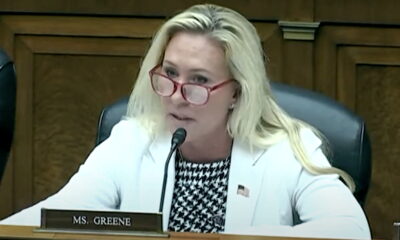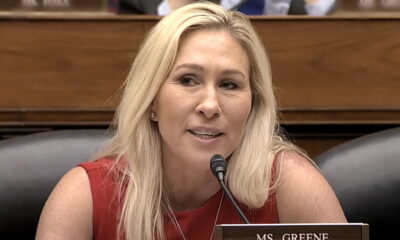'A WAR FOR AMERICA’S DEMOCRACY'
Georgia GOP Says Its Voting Restrictions “Backfired” & Helped Dems Win Senate Seat

When two Republicans lost Georgia’s special runoff senate elections in January 2021, state Republicans in the General Assembly re-wrote voting laws to restrict absentee ballots and give voters fewer days to vote in future runoff elections.
However, after Republicans lost yet another runoff election for Georgia’s Senate seat — with Herschel Walker losing to his Democratic competitor, Rev. Raphael Warnock, earlier this month — state Republicans want to re-re-write the rules, hopeful of a more favorable outcome.
Georgia’s Secretary of State Brad Raffensperger (R), the official who oversees the state’s voting procedures, said he plans on giving three proposals to lawmakers when they return to the General Assembly in January.
“[The proposals] include forcing large counties to open more early-voting locations (in an attempt to reduce the hours-long lines some voters waited in) … lowering the threshold candidates must achieve to avoid a runoff from 50 percent to 45 percent; and instituting a ranked-choice instant-runoff system that would not require voters to come back to the polls again after the general election,” The New York Times reported.
To be clear, it’s unclear whether these changes would’ve helped Walker win. But they stand in contrast to the changes state Republicans made to voting laws following their failed January 2021 Senate runoff ambitions.
The changes after that time severely restricted the types of people eligible to receive an absentee ballot. While 24 percent of the January 2021 vote came via mail-in absentee ballots, the rule changes resulted in 5 percent of mail-in votes coming in for the January 2022 runoff.
Republicans also lowered the number of in-person early voting days to five (though the rule change allowed counties to add extra days.) The Times found that 28 of Georgia’s 159 counties opted to add extra in-person early voting days — 17 of the counties that did largely backed Warnock while 11 backed his challenger.
Before the recent run-off election, Raffensperger also tried to enforce a state law forbidding in-person early voting on the Saturday after Thanksgiving. However, Warnock successfully sued to prevent the law from going into effect.
Overall, the changes may have “backfired,” Republicans told The Times, actually encouraging Democratic voters to come out in greater numbers.
While Republicans point to the large turnout of runoff voters as “proof” that their changes didn’t discourage voting, Warnock’s campaign criticized the changes, saying that such restrictions shouldn’t make it harder for people to vote in the first place.
Enjoy this piece?
… then let us make a small request. The New Civil Rights Movement depends on readers like you to meet our ongoing expenses and continue producing quality progressive journalism. Three Silicon Valley giants consume 70 percent of all online advertising dollars, so we need your help to continue doing what we do.
NCRM is independent. You won’t find mainstream media bias here. From unflinching coverage of religious extremism, to spotlighting efforts to roll back our rights, NCRM continues to speak truth to power. America needs independent voices like NCRM to be sure no one is forgotten.
Every reader contribution, whatever the amount, makes a tremendous difference. Help ensure NCRM remains independent long into the future. Support progressive journalism with a one-time contribution to NCRM, or click here to become a subscriber. Thank you. Click here to donate by check.
 |





























